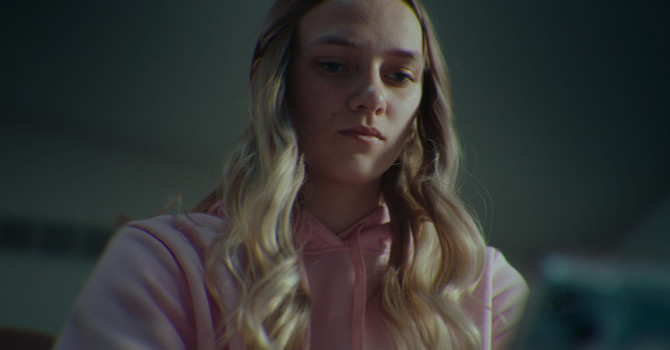
Most people have odd, unwanted thoughts from time to time: passing worries, random fears, or strange images that flicker and fade. But for those living with Obsessive-Compulsive Disorder (OCD) [especially Pure Obsessional OCD (Pure O)] these intrusive thoughts don’t just pass through. They stick. They grow. They spiral.
Pure O can feel like being held hostage by your own mind. The thoughts are distressing, unwanted, and often completely out of line with your values or who you know yourself to be. Yet the more you try to get rid of them, the stronger they seem to become.
This is the exhausting and often invisible reality of Pure O; one that many people carry silently, not realizing that help is available or that what they’re experiencing even has a name.
In this post, we’ll explore what Pure O really is, how it differs from general anxiety, and how an integrative therapy approach can help you break free from the cycles of fear, doubt, and emotional distress.
What is Pure O OCD?
Pure O is a subtype of OCD where the obsessions (the intrusive, unwanted thoughts) are front and center, while the compulsions are often mental, subtle, or hidden. This is part of why Pure O can be so isolating and misunderstood: from the outside, it may look like everything is fine, but internally, the mind is caught in exhausting loops of fear, guilt, and doubt.
Some common themes of intrusive thoughts in Pure O include:
-
Relationship OCD (ROCD): Obsessive doubts about your romantic relationship; “Do I really love them? Are they the right person?”
-
Religious OCD (Scrupulosity): Intense fears of sinning, offending a higher power, or being morally flawed.
-
Harm OCD: Fears about accidentally or intentionally causing harm to others.
-
Existential OCD: Obsessive questioning about reality, life, death, or the meaning of existence.
These thoughts can feel shocking, upsetting, or completely out of alignment with who you are, which is why they’re so distressing. The more you try to suppress them or “solve” them, the stronger they tend to become.
How Is OCD Different From Anxiety?
Although OCD and anxiety often overlap, they are distinct conditions. Many people with OCD also experience general anxiety, but not everyone with anxiety has OCD.
-
Anxiety tends to focus on fear of future events, uncertainty, or perceived inability to cope.
-
OCD is driven by obsessions (intrusive, unwanted thoughts) and compulsions (actions (whether physical or mental) aimed at reducing distress).
It’s also important to know that OCD is no longer classified as an anxiety disorder in the diagnostic manuals. Understanding this distinction can help guide you toward the right treatment, since strategies that work for general anxiety (like avoidance or reassurance) can actually make OCD worse.
The Hidden Struggle of Pure O
One of the most painful aspects of Pure O is how invisible and consuming it can feel. Because the compulsions are internal (such as mentally reviewing situations, seeking reassurance, or “checking” feelings) it can be difficult for others to see the suffering.
You might find yourself stuck in loops of:
-
Repetitive mental checking (eg. “Did I hurt someone without realizing?”)
-
Analyzing thoughts for meaning or moral weight
-
Constantly seeking reassurance from others or from within
-
Avoiding situations, relationships, or activities that trigger unwanted thoughts
These patterns don’t happen because you want them to, they happen because your brain is stuck in a survival response, trying desperately to keep you safe from imagined threats.
How Therapy Helps You Shift the Cycle of OCD and Anxiety
Living with Pure O OCD can feel like your mind has become a maze with no exit. The harder you try to think your way out, the more trapped you feel; caught in an endless loop of doubt, fear, and searching for answers that never seem to come.
Therapy offers a different way forward.
Instead of fighting your thoughts or running from them, therapy helps you shift your relationship with the mind itself. This means learning how to tolerate uncertainty, dismantle the false alarms your brain keeps sending, and reconnect with your own inner steadiness.
In our work together, we draw from a range of approaches, not just one rigid method. This can include:
-
Learning how OCD operates in the brain and body, so you can name what's happening and begin to separate yourself from the cycle.
-
Gradual exposure to the thoughts or feelings you’ve been avoiding, using tools that help you face discomfort without feeding the spiral.
-
Exploring the emotional roots beneath the anxiety, whether that’s a history of: perfectionism, fear of failure, or deep sensitivity to harm.
-
Integrating somatic and mindfulness tools that help settle the nervous system, rather than relying solely on mental strategies.
For those who find themselves caught in patterns of obsessive rumination, guilt, or the need for certainty, this integrative work can gently shift old patterns and open the door to greater freedom.
When Your Mind Feels Like an Unruly Roommate
One way to understand OCD (especially Pure O) is to imagine your mind as a loud, anxious roommate who’s constantly offering worst-case scenarios and demanding reassurance. No matter how many times you answer their questions or try to calm them down, they come back louder and more urgent.
If you’re living with Pure O, you might notice patterns like:
-
Feeling hijacked by unwanted thoughts that make you question who you are, what you value, or whether you’re safe.
-
Getting stuck in endless mental loops, trying to find the “right” answer, make the discomfort go away, or prevent imagined harm.
-
Avoiding situations, people, or choices because of fear, doubt, or intrusive thoughts.
-
Exhaustion from over-analyzing everything, yet still feeling no closer to peace of mind.
Therapy helps you learn how to stop debating with the intrusive roommate; to hear the noise without obeying it, and to slowly build a life that is no longer dictated by anxiety, fear, or obsessive thought patterns.
You don’t need to “fix” every thought to feel better. You can learn to move forward anyway, with more confidence, clarity, and calm.
The Path Toward Healing
Healing from OCD and anxiety is about changing your relationship with your mind, so thoughts lose their power and your life no longer revolves around managing them.
With the right support, you can:
-
Build resilience in the face of uncertainty
-
Develop greater self-compassion and self-trust
-
Experience freedom from compulsive patterns
-
Reconnect with what matters most to you: relationships, creativity, purpose, joy
You Don’t Have to Do This Alone
The truth is, you don’t have to keep living at the mercy of intrusive thoughts. You don’t have to wait until you feel “ready” or until the anxiety disappears to start living your life. Healing from OCD (especially Pure O) is not about making every thought go away. It’s about learning how to stop following them, stop fighting them, and start living alongside them without fear.
Through compassionate, tailored therapy it’s possible to step out of the loops and reconnect with yourself.
If you’re in Ontario and ready to begin this work, you don’t have to do it alone. Reach out here anytime to take the next step toward freedom, calm, and healing.
____________________________________
Meet Rebecca Steele: Registered Social Worker, Psychotherapist (MA, MSW, RSW, CCC)
Rebecca is a Waterloo-based trauma therapist offering virtual counselling across Ontario. With over a decade of experience, she helps adults navigate trauma, anxiety, OCD (including “Pure O” presentations), and self-esteem. Her insight-driven depth therapy approach supports self-understanding, emotional healing, and lasting change. Book an appointment or learn more about her online therapy services.
Located outside Ontario? You can explore Rebecca’s coaching and consulting offerings here.




